Meet Onyx, the zine-making collective magnifying the voices of disabled people of colour
gal-dem meets the artists behind new zine Onyx Collective: Practising Unapologetics to talk creation, curation and community.
Isabelle Jani-Friend
28 Oct 2022
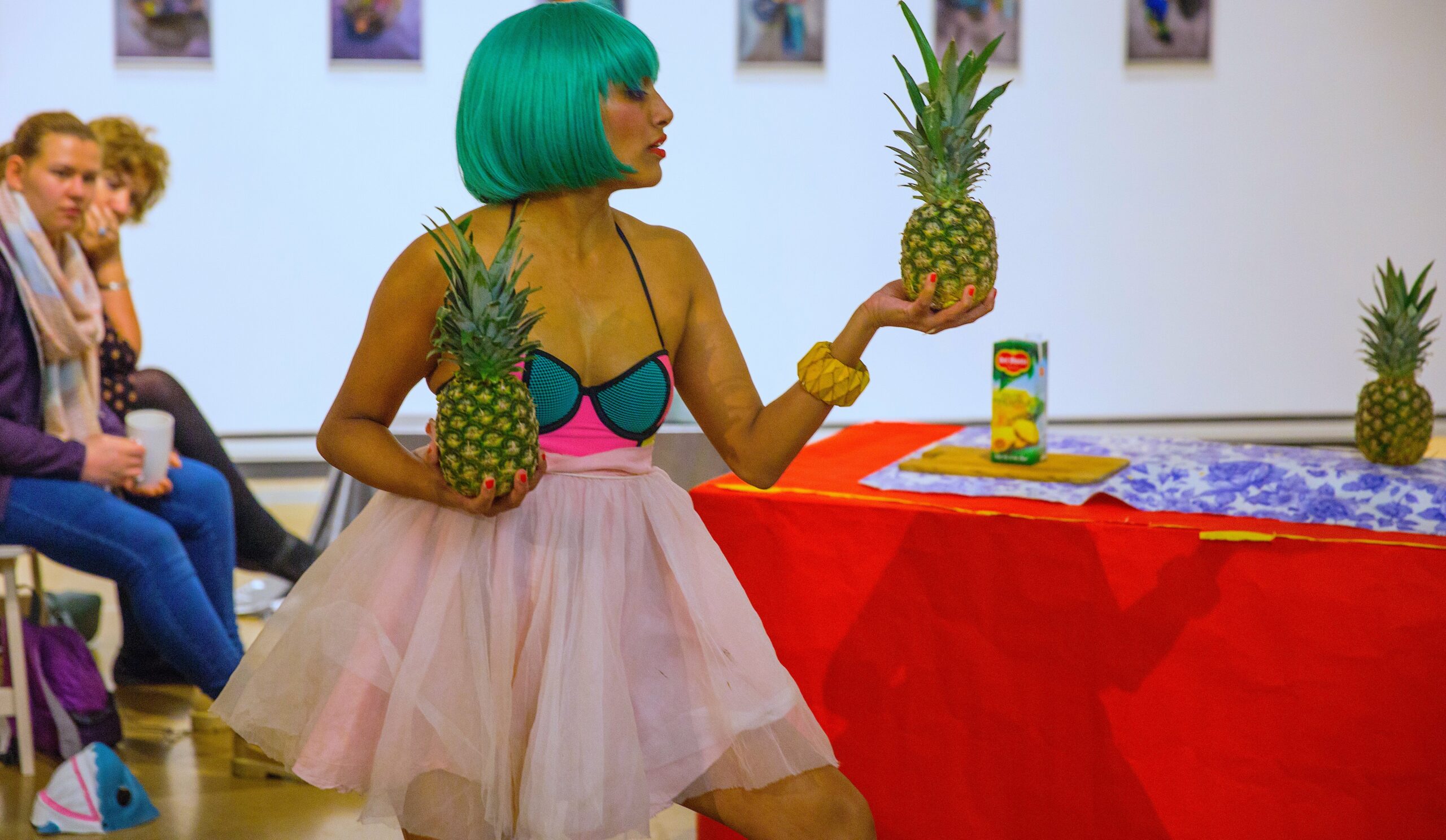
Priya Mistry, by DWC Imagery
A bare, matte black magazine arrived at my door at the start of September. On the front, it simply read ‘Onyx Collective: Practising Unapologetics!’ and, before flicking through, I was unsure what to expect. As a mixed-race disabled woman, I am used to disability being portrayed as tragic, depressing and bleak so, as I opened the zine, I was apprehensive.
But as soon as I turned the front page, my worries disappeared and I was overcome by the vibrant colour and powerful words and imagery filling the carefully curated pages. The zine presents a collection of stunning and captivating artworks, presentations and conversations lifting a lid on what it’s really like to be a disabled person of colour in 2022, through multiple photography series, moving poetry, short films, artistic self-expression and stereotype-subverting self-portraits.
Practising Unapologetics!, the debut publication by Onyx Collective, first originated as an idea at the start of the pandemic and was published this summer, comprising of work by eight contributing artists who have lived experiences of disability and racism. Curated by Disability Arts Online, the zine looks at themes of survivorship, de-colonisation, homelessness, architecture, accessibility, identity, activism and more.
The artists Priya Mistry, Ashokkumar Mistry, Miss Jacqui, Alexandrina Hemsley, Kuli Kohli, Ngozi Ugochukwu, Omikemi and Nila Gupta, who passed away in 2021, present poetry, photography, writings, and video installations displaying their point of view and lived experiences.
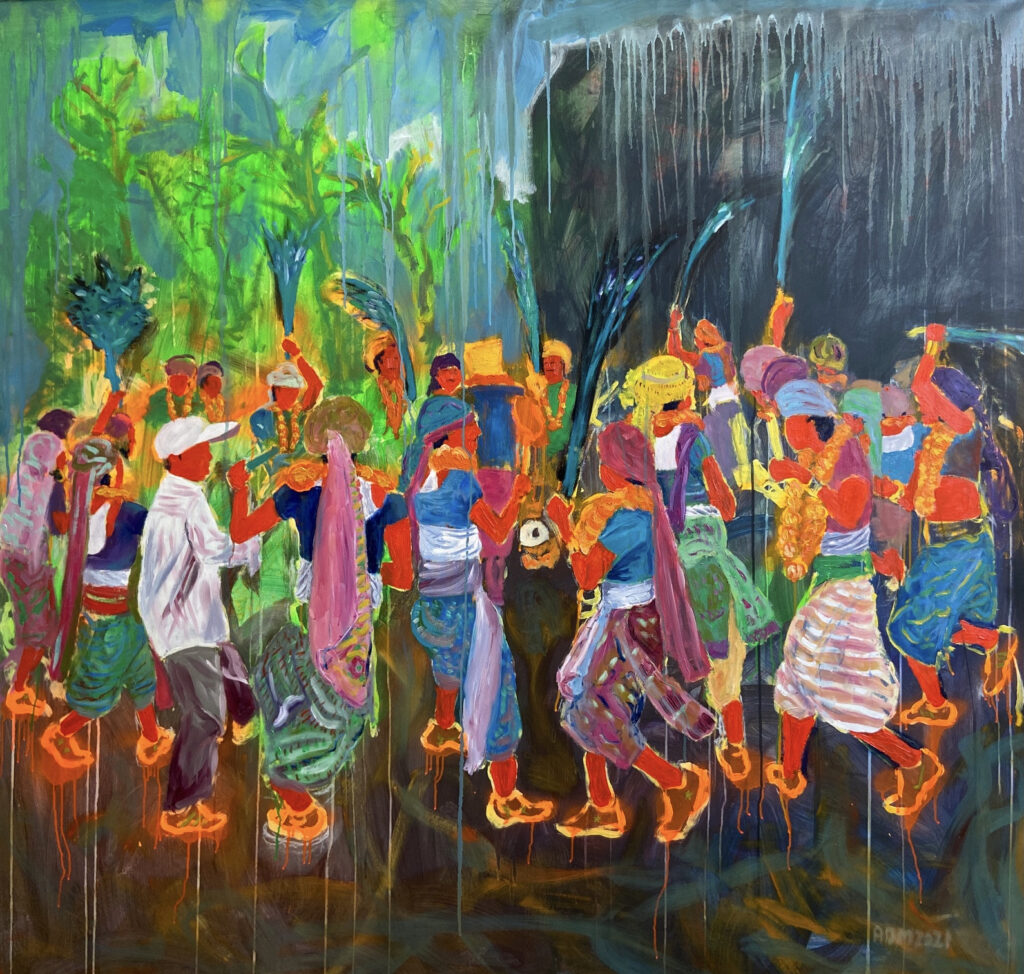
Ngozi Ugochukwu’s work on hostile architecture, ‘Stairs: Where are the shadows?’ reflects the limitations and inaccessibility of society from her perspective as a disabled wheelchair user. The series of photographs looks at the design of stairs, showing how they change and distort depending on the light and shadows being cast down upon them.
“The project came out of anger and frustration,” Ngozi tells gal-dem via Zoom. “For the past 10 years, I have been documenting the places I can’t get into, especially when I lived in London. Taking these pictures became a small piece of activism for me. But then I started to notice the architecture of the stairs and began to see the beauty out of our need for them. And the need to realise they are a barrier for some of us.”
“Taking these pictures became a small piece of activism for me”
Ngozi Ugochukwu
“Disability is the biggest barrier in my life. It will always be there, in the background,” Ngozi says. “There are so many things I cannot do because of the society that we live in. Not because of my lack of willingness to do it.”
The northern-UK-based artist drew inspiration from images she had taken when she attended her father’s funeral in Nigeria. Ngozi began taking photos to capture memories of her childhood, such as the local landscapes and stairs at her old family home. “I wanted to document my life,” she says.
Ngozi spent the next ten years taking photos of stairs but never shared the work with anyone. Photography became something more than a hobby when she stumbled across a call for work from Disability Arts Online and had a “lockdown realisation.” She says: “I found lockdown really intense. So I decided to put myself forward, not thinking it would go anywhere.”
While the project unsurprisingly resonated with the disabled community, it was the response from non-disabled people that really hit home for Ngozi. “Disabled people know their boundaries, but my work actually made the non-disabled community look at their world and see how many problems there are.”
Ngozi’s photography is placed alongside a range of other reflective explorations in the zine. The Empire’s Old Clothes, a short non-linear film by multidisciplinary artist Priya Mistry (also known as whatsthebigmistry), takes on a critical view of identity that seeks to challenge where our societal norms and ideas come from.
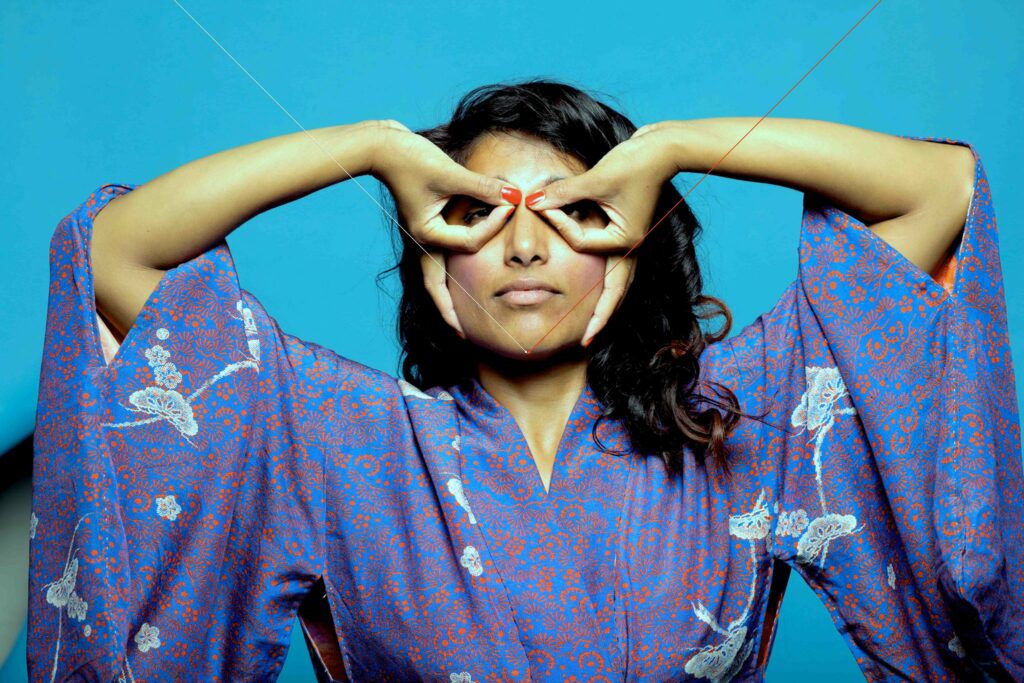
Their video presentation and photo collection showcased in the zine, based on the classic folk tale The Emperor’s New Clothes, attempts to challenge the myths surrounding the British Empire, drawing on influences from Indian and queer culture, as well as experiences of ableism and racism in modern society. Through exploring maps, fashion, and the history of Eurocentric beauty standards, Priya draws attention to the ways in which the British Empire impacts our everyday experiences.
In September, her work was removed from the Southbank Centre after the death of Queen Elizabeth “because the content was not the right tone for mourning,” according to Priya. “The cancellation and censorship of The Empire’s Old Clothes due to [recent] context is enormously exposing,” she said in an Instagram post discussing the removal. In a response to a request for comment from gal-dem, the Southbank Centre said it removed two other works that were part of the programme as they “felt tonally inappropriate under the circumstances”. The Centre said that these two works have since been rescheduled, and that they are seeking to reschedule The Empire’s Old Clothes with Priya.
“Regardless of the reasons Southbank give for its decision, this was censorship,” Priya tells gal-dem via email. “The other two cancelled works which have since been rescheduled do not deal with the legacy of colonialism and empire, which makes the power dynamic in those contexts different. The death of the queen was the perfect time to open up conversations about these issues. Instead, both the audiences’ choice, and my voice – as a global majority artist – was shut down.”
“The incident only further emphasises the importance of the Onyx zine as a place for disabled POC to unapologetically express themselves with agency”
The incident only further emphasises the importance of the Onyx zine as a place for disabled POC to unapologetically express themselves with agency. The zine also offers an escape for some artists who wish to produce moving work beyond the scope of disability.
Wolverhampton City’s Poet Laureate and author Kuli Kohli’s commissioned work for the magazine, a poetry collection titled The Power of Words, reflects her love for writing and her desire to create powerful imagery. The poems cover topics from identity, and daily life to nature and the world around us.
Transformation, the first piece showcased in the zine by Kuli, depicts how processes, such as music, cooking, building and writing are carried out in daily life. A prominent line within the poem reads, “a caring society transforms disability into an ability.” Kuli explains: “If you have a disability, a caring society does not look at you as disabled. And even if you are non-disabled, a non-caring society will still harm you.”
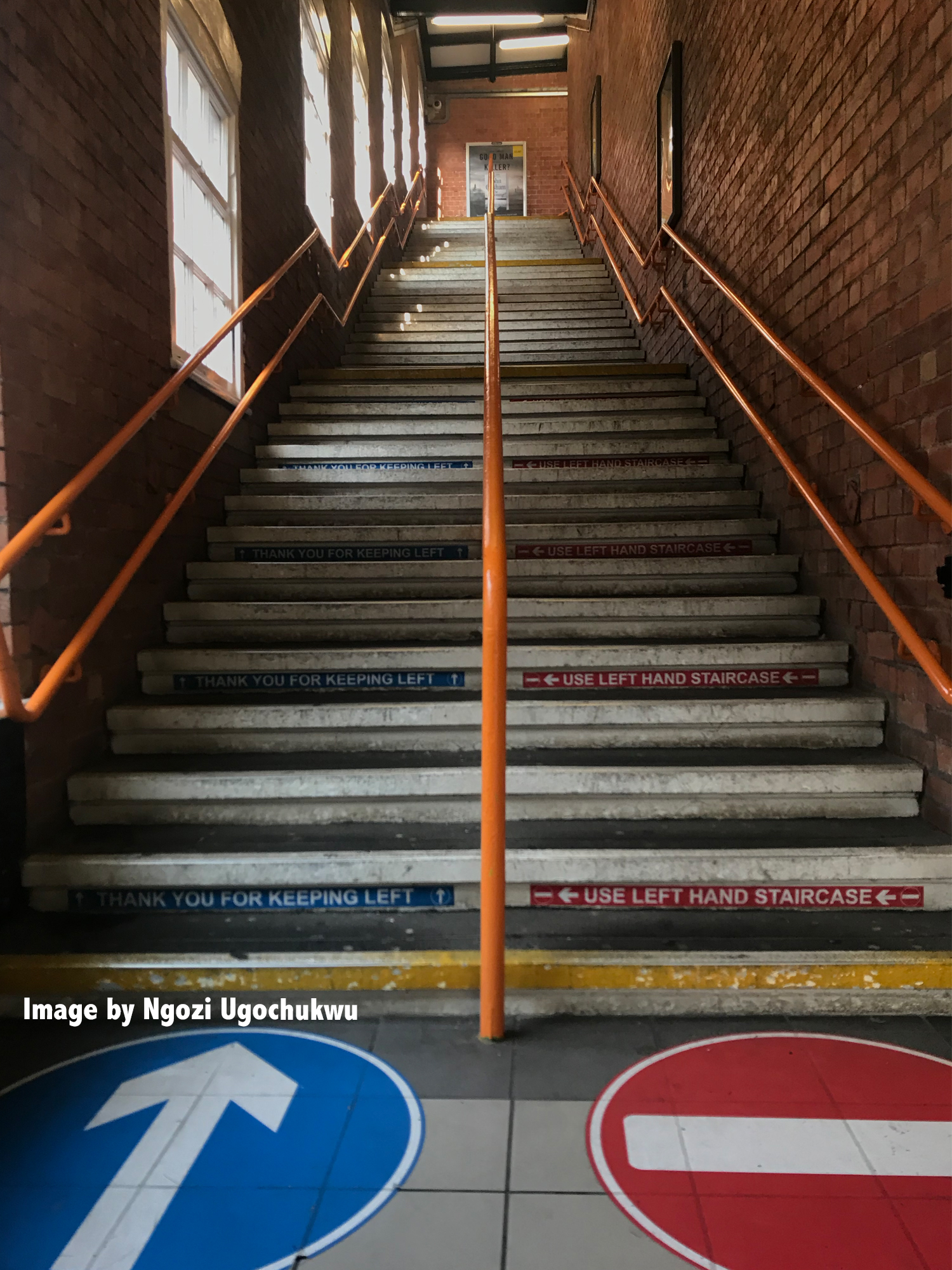
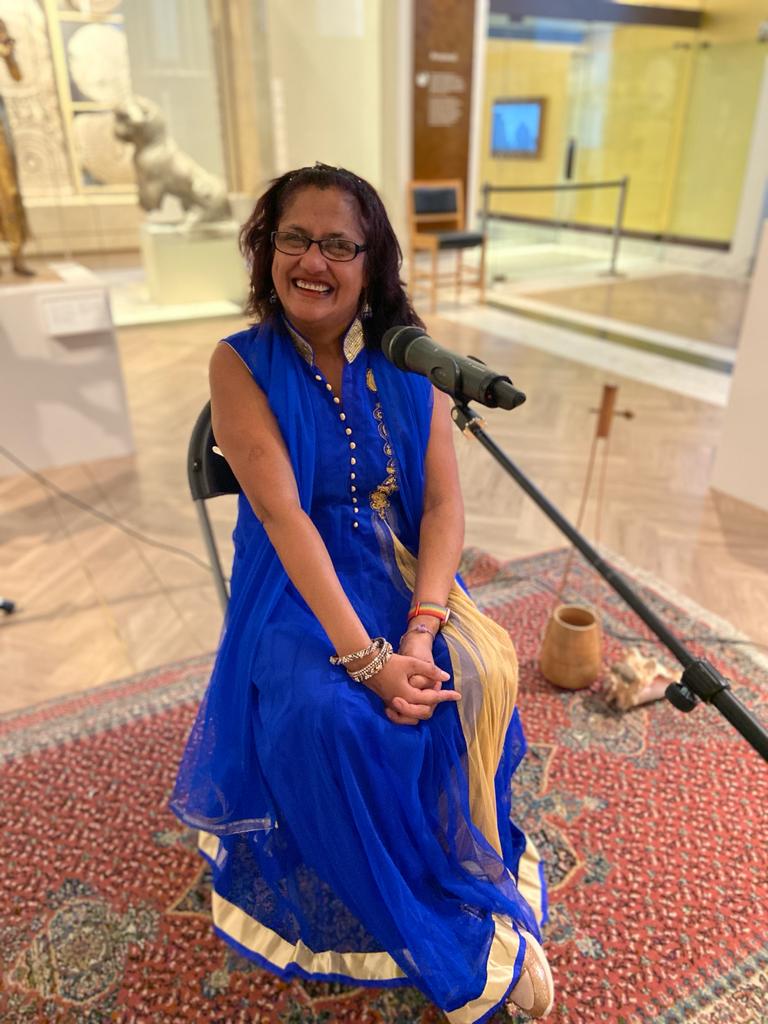
Poetry has allowed Kuli to connect with and accept her disability. “At first I wanted to write about disability because that was the only thing impacting me,” Kuli, who has cerebral palsy, tells gal-dem.
She hopes her words will be just as transformative for her readers’ perceptions of disability. “When people see me, they think I am drunk or dumb, but when they read my poetry, I hope they learn that I am just like them,” she explains. “I may be disabled, and there are things I can’t do, but I’ve got aspirations, dreams, feelings and emotions too. I just want people to see me as a normal person who expresses herself in a different way, through writing.”
Now Kuli is broadening her range to cover different issues and themes, and her collection in the zine reflects this by shifting its focus away from disability. “I used to write dark poems about my disability, but now I want to write poetry to uplift people,” she says. “With this collection, I wanted people to look at the details of nature and be inspired by my words and connect with them. I wanted to paint a picture with my poetry.”
For her, the most important part of contributing to the Onyx Collective was the bond the creators made with one another. “The zine kept me going through the pandemic. It really helped to work with other like-minded people and create poetry that could empower others, especially other disabled people. I hope it will inspire them to create and join a collective.”
Onyx Collective: Practising Unapologetics! is available to purchase here.
Our groundbreaking journalism relies on the crucial support of a community of gal-dem members. We would not be able to continue to hold truth to power in this industry without them, and you can support us from £5 per month – less than a weekly coffee.
Our members get exclusive access to events, discounts from independent brands, newsletters from our editors, quarterly gifts, print magazines, and so much more!









